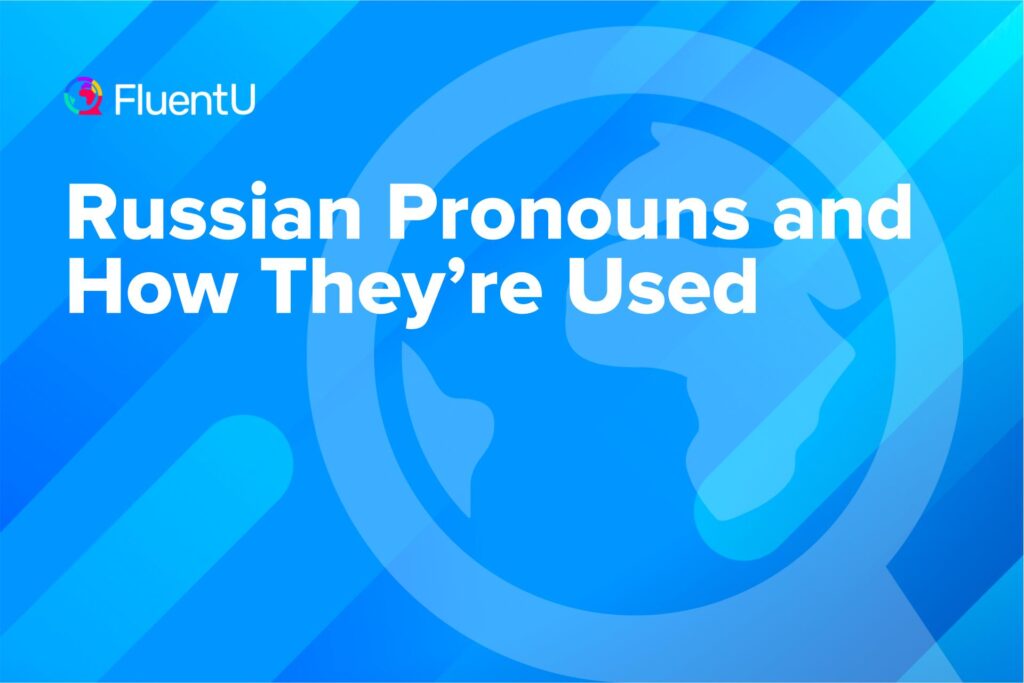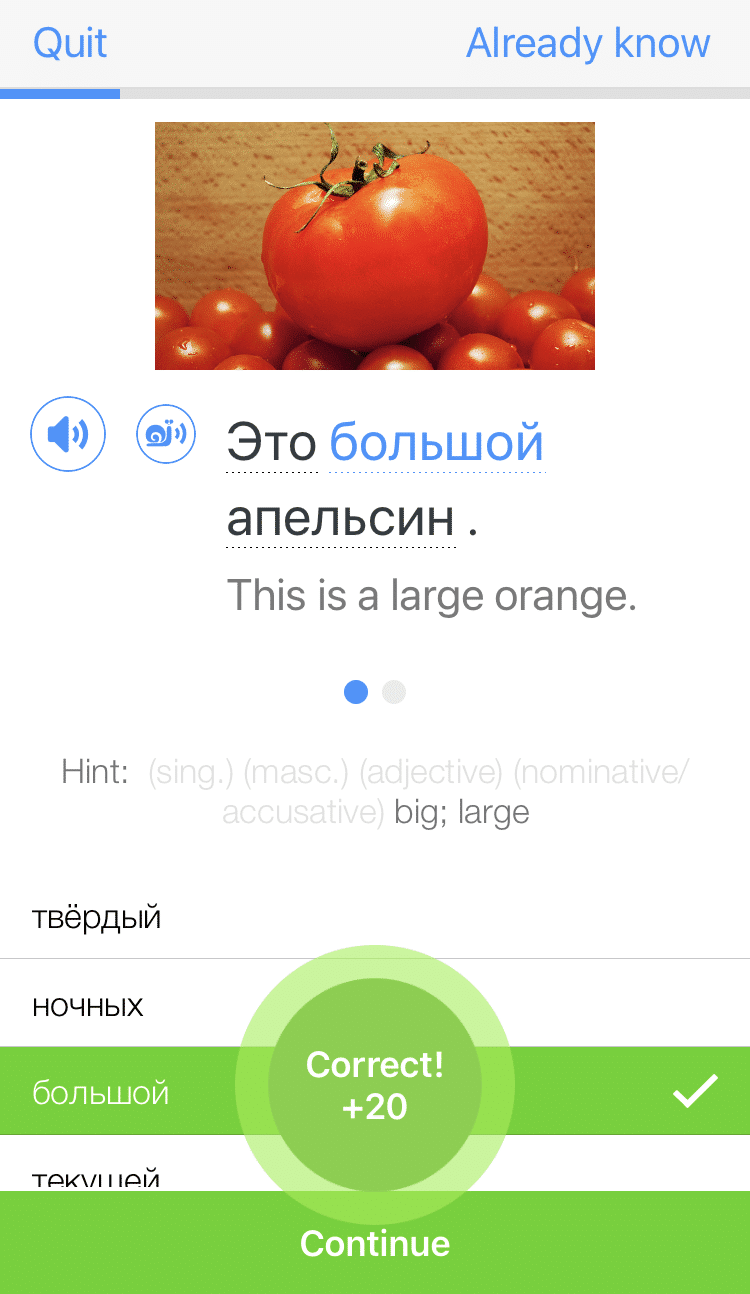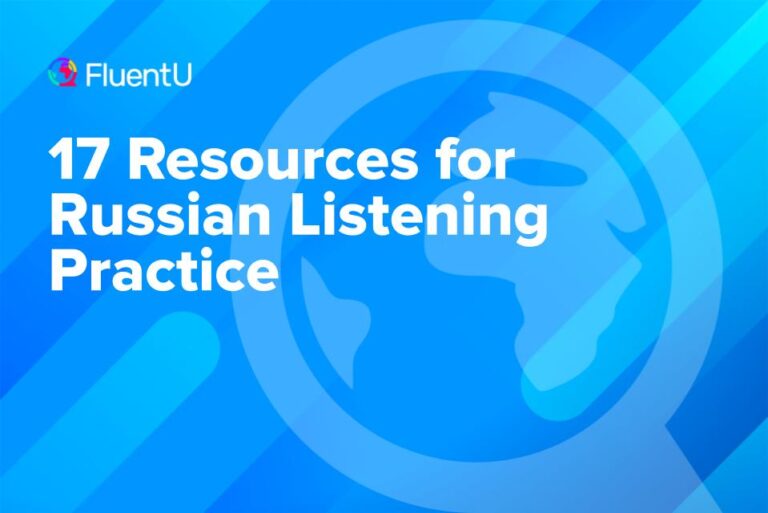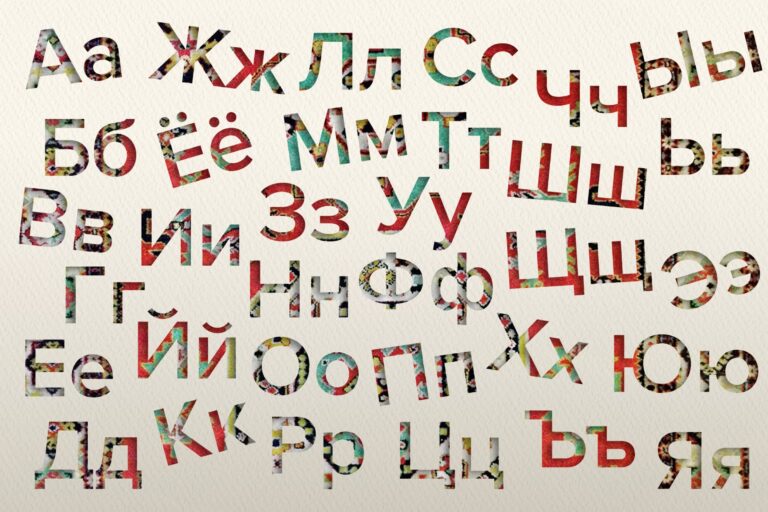Russian Pronouns and How They’re Used

Did you know that the third Wednesday of October is International Pronouns Day? When this started, it got me thinking about gender-neutral pronouns in Russian, such as Оно (it).
I asked my Russian-speaking friends about using this class of pronouns for people, and there was a shocked silence. This was followed by both nervous gulps and chortles of laughter—apparently, this is an insult beyond the pale to some.
Your choice of Russian pronouns is extremely important, which is why I’m here to get you started with a thorough guide!
Download: This blog post is available as a convenient and portable PDF that you can take anywhere. Click here to get a copy. (Download)
Russian Pronouns: The Complete List
Russian Personal Pronouns
Here are a few things to look out for before we dive into each case:
The accusative and genitive cases are similar for all pronouns.
But for the nominative case, where we have оно for the neuter gender and он for masculine, the neuter gender uses the same pronouns as the male gender.
When third-person pronouns are used along with prepositions, add the letter н to the pronoun. For example:
у него (genitive case)
про неё (accusative case)
Nominative Case (Subject)
This is the basic form from which pronouns and nouns are introduced before any inflections for case are made.
Examples:
Я люблю шоколад.
I like chocolate.
Они сегодня идут гулять.
They are going out today.
| Nominative Case | English | |
|---|---|---|
| Singular | Я | I |
| Ты | you | |
| Он | he | |
| Она | she | |
| Оно | it | |
| Plural | Мы | we |
| Вы | you | |
| Они | they |
Genitive Case (Indicating Relationship)
In English, the relationship is mostly established by using the preposition of or adding ‘s to the end of a noun. But in other languages, such as Latin and Sanskrit, the genitive is used with a range of prepositions.
The best way to identify the genitive case in Russian is by noting the prepositions that mark it. These are:
The most intuitive use of the genitive may be to indicate possession (for example, “my book”), but in Russian, this is done with the possessive pronouns (thus the translation of “my book” is моя книга ).
Because the possessive pronouns coincide with the genitive personal pronouns only in the third person, it’s important to take note of this distinction. This difference between possessive and genitive may be a little difficult to grapple with in English, let alone Russian, which is why it’s a frequently asked question among language learners.
Examples:
У тебя будет встреча?
Do you have a meeting?
Возьмите для меня одно пиво.
Ask for a beer for me.
| Nominative Case | Genitive Case | English | |
|---|---|---|---|
| Singular | Я | Меня | me |
| Ты | Тебя | you | |
| Он | Его | him | |
| Она | Её | her | |
| Он | Его | it | |
| Plural | Мы | Нас | us |
| Вы | Вас | you | |
| Они | Их | them |
Accusative Case (Direct Object)
A quick glance at the pronouns and their translations will tell you that they’re the same as in the genitive case. Examine this in terms of the definitions of each case and it may seem inexplicable, but when you look at examples, the commonality seems more natural.
For instance, the genitive case would be “It came from me.” The accusative would be “He sent me.”
Examples:
Держи её крепко.
Hold her tightly.
Учитель спрашивал вас.
The teacher asked you.
| Nominative Case | Accusative Case | English | |
|---|---|---|---|
| Singular | Я | Меня | me |
| Ты | Тебя | you | |
| Он | Его | him | |
| Она | Её | her | |
| Он | Его | it | |
| Plural | Мы | Нас | us |
| Вы | Вас | you | |
| Они | Их | them |
Dative Case (Indirect Object)
Recall that the dative case is used in a number of common utterances, such as надо (need), нравится (like) and queries about age.
Examples:
Дай ему яблоко.
Give him an apple. Or, Give an apple to him.
Нам не нравится такая музыка.
We do not like this type of music.
| Nominative Case | Dative Case | English | |
|---|---|---|---|
| Singular | Я | Мне | me |
| Ты | Тебе | you | |
| Он | Ему | him | |
| Она | Ей | her | |
| Он | Ему | it | |
| Plural | Мы | Нам | us |
| Вы | Вам | you | |
| Они | Им | them |
Instrumental Case (as the Means or Instrument)
This is another case whose usage is hard to correlate with a definition in English. Once again, the prepositions that adjoin it are the best indicators of when it should be used. These are:
Examples:
Пойдем со мной.
Come with me.
Перед нами остановилась машина.
A car stopped in front of us.
| Nominative Case | Instrumental Case | English | |
|---|---|---|---|
| Singular | Я | Мной | me |
| Ты | Тобой | you | |
| Он | Им | him | |
| Она | Ей | her | |
| Он | Им | it | |
| Plural | Мы | Нами | us |
| Вы | Вами | you | |
| Они | Ими | them |
Prepositional Case (Nouns Used with Other Prepositions)
Though this case and its name relates to several prepositions, when used for people, it’s most commonly used with о and its variants об and обо (about).
Examples:
Иван давно забыл о ней.
Ivan forgot about her a long time ago.
Давай поговорим о тебе.
Let’s talk about you.
| Nominative Case | Prepositional Case | English | |
|---|---|---|---|
| Singular | Я | Мне | me |
| Ты | Тебе | you | |
| Он | Нём | him | |
| Она | Ней | her | |
| Он | Нём | it | |
| Plural | Мы | Нас | us |
| Вы | Вас | you | |
| Они | Них | them |
Russian Reflexive Pronouns
Could there be a self within myself or yourself that relates to all other selves?
The Russian word for self, себя , refers to each, every and all selves.
If we were to talk about people seeing themselves, we would say:
Я вижу себя.
I see myself.
Она видит себя.
She sees herself.
Они видят себя.
They see themselves.
You may be thinking that this is just too easy… and you’d be right. Remember that it has to be declined for each case. Luckily, we’re spared the nominative case because Себя can never be the subject of a sentence.
| Case | Conjugation of себя |
|---|---|
| Nominative (subject of the sentence) | None |
| Accusative (direct object) | себя |
| Dative (indirect object) | себе |
| Genitive (showing possession or relationship) | себя |
| Instrumental (as an instrument or tool) | собой |
| Prepositional (about himself or herself) | (o) себе |
Russian Possessive Pronouns
A possessive pronoun is used to represent possession. For instance, if the book belongs to your friend, you’d say that it’s hers. If you have a cat, you would refer to him as mine (at least, as much as a cat can belong to someone).
The possessive pronouns for “his,” “hers,” “its” and “theirs” are fairly simple since they don’t change for different tenses:
The rest of the pronouns are more complicated since you’ll need to keep the case in mind. They are as follows:
Давай, пропой мне всё это! (Come on, sing all this for me!)
That’s that!
It may be a while before you can use these pronouns intuitively, but you’re well on your way. Just remember to keep an eye out for them when you’re consuming native Russian content, whether you’re reading the news or watching a TV series. Subtitled programs like FluentU are extra helpful for highlighting language concepts such as pronouns.
FluentU takes authentic videos—like music videos, movie trailers, news and inspiring talks—and turns them into personalized language learning lessons.
You can try FluentU for free for 2 weeks. Check out the website or download the iOS app or Android app.
P.S. Click here to take advantage of our current sale! (Expires at the end of this month.)
There’s the poem “Моя грамматика” by М. Раскатов, too, if you want to enjoy some wit and bask in the glow of your recently acquired pronoun knowledge!
And One More Thing...
If you love learning Russian and want to immerse yourself with authentic materials from Russia, then I should also tell you more about FluentU.
FluentU naturally and gradually eases you into learning the Russian language and culture. You'll learn real Russian as it's spoken by real Russian people!
FluentU has a very broad range of contemporary videos. Just a quick look will give you an idea of the variety of Russian-language content available on FluentU:

FluentU makes these native Russian videos approachable through interactive transcripts. Tap on any word to look it up instantly.

Access a complete interactive transcript of every video under the Dialogue tab. Easily review words and phrases with audio under Vocab.

All definitions have multiple examples, and they're written for Russian learners like you. Tap to add words you'd like to review to a vocab list.
And FluentU has a learn mode which turns every video into a language learning lesson. You can always swipe left or right to see more examples.

The best part? FluentU keeps track of your vocabulary, and gives you extra practice with difficult words. It'll even remind you when it’s time to review what you’ve learned. You'll have a 100% personalized experience.
Start using the FluentU website on your computer or tablet or, better yet, download the FluentU app from the iTunes or Google Play store. Click here to take advantage of our current sale! (Expires at the end of this month.)








